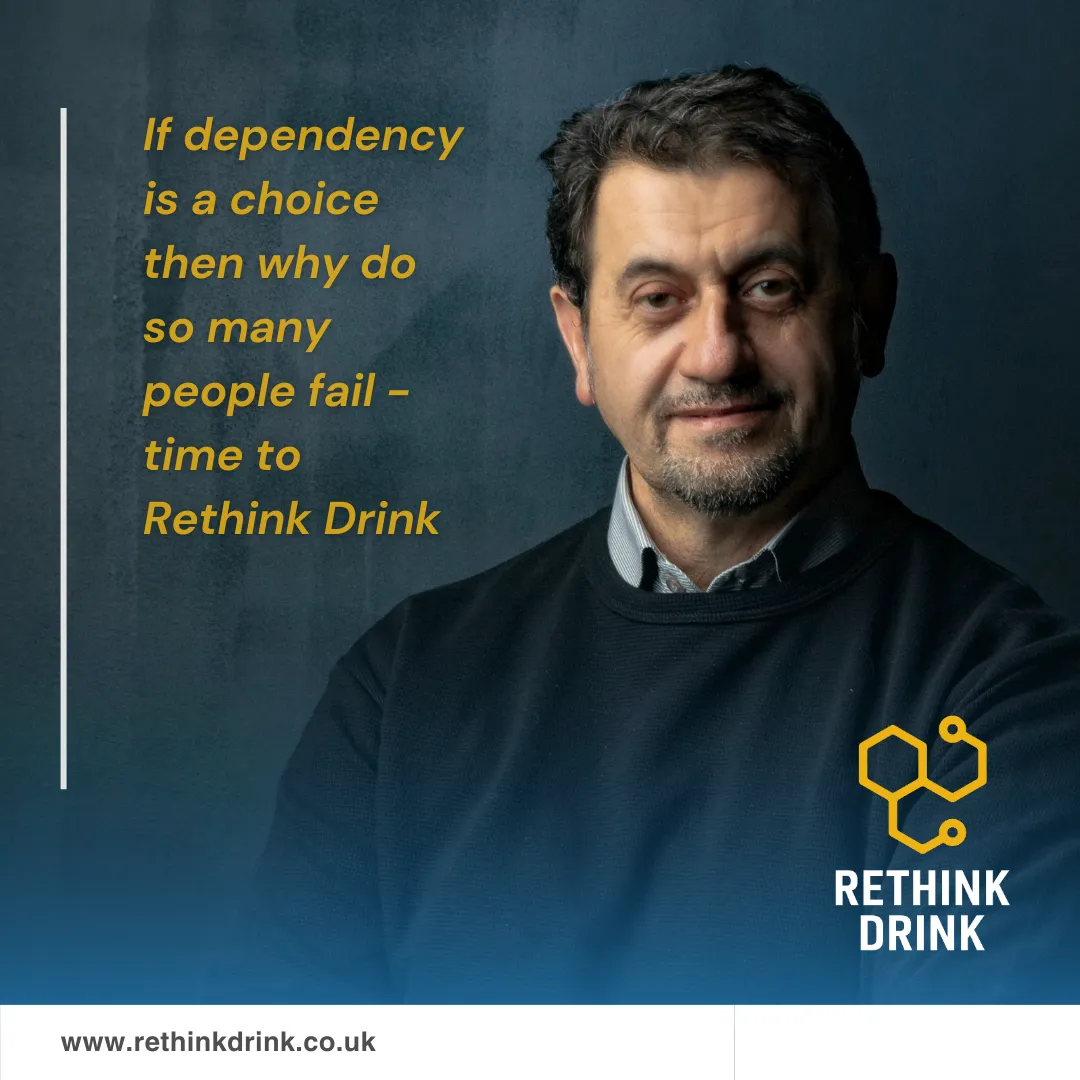
Is Alcohol Dependency Really a Choice? Why So Many Still Struggle?
Key Takeaways
Alcohol dependency is shaped by brain chemistry — not just personal choice or discipline.
Traditional treatment methods have relapse rates of up to 90%.
The Sinclair Method provides a science-based path to long-term change.
Willpower alone is not a sustainable strategy for overcoming alcohol dependence.
Access to tools like Naltrexone and structured coaching greatly improves outcomes.
Challenging the Myth of Choice in Alcohol Dependency
"Why don’t they just stop?" It’s a familiar question — one that often leads to frustration, judgement, and misunderstanding. For years, alcohol dependency has been viewed through the lens of morality or self-control. But science paints a different picture: alcohol use disorder (AUD) is not a lifestyle choice, but a chronic condition shaped by changes in brain function.
At Rethink Drink, we work to dismantle outdated ideas about addiction, and show people how to find real, lasting solutions rooted in neuroscience — not shame.
Understanding Alcohol Relapse: Why So Many Struggle
Alcohol dependency has one of the highest relapse rates among chronic conditions. This alone tells us that traditional methods are not hitting the mark.
Key statistics about alcohol relapse:
Abstinence-based approaches have relapse rates between 60%–90% within the first year.
Talk therapy alone, while helpful, sees around 50% of individuals returning to drinking patterns.
The Sinclair Method, when followed correctly, shows success rates above 75%.
These figures underscore a critical point: dependency isn’t just about motivation or making better choices — it’s about disrupting the underlying reward mechanism in the brain.
Willpower Isn’t a Long-Term Solution
Willpower is often praised as the gold standard in recovery — but it’s also one of the easiest to exhaust. Addiction, particularly when it involves alcohol, is built into the neurological pathways that drive reward, craving, and relief.
Why willpower fails so often:
Brain chemistry overrides logic – alcohol boosts dopamine, reinforcing the craving loop.
Emotional and social triggers – stress, social settings, and routines reignite old behaviours.
Fear of withdrawal – many avoid quitting out of concern for mental and physical discomfort.
Decision fatigue – over time, relying solely on internal strength wears people down.
That’s why sustainable change comes from rewiring, not resisting.
The Sinclair Method: Targeting Cravings at the Source
We believe that healing starts with understanding — and that’s exactly what The Sinclair Method offers. Instead of asking people to fight cravings with willpower, it uses a medication-first strategy to gradually extinguish them.
How it works:
Step 1: Take Naltrexone one hour before drinking alcohol.
Step 2: Drink as normal — this is crucial to disrupt the reward loop.
Step 3: Over time, your brain unlearns the pleasure response to alcohol.
This process is called Pharmacological Extinction, and it allows people to gradually reduce their intake without the trauma of forced abstinence. It’s not magic — it’s medicine backed by decades of research.
Combining Medication with Support
Medication is powerful, but it works best alongside structured guidance. That’s why we offer personalised support to help you stay on track and adjust as needed. Whether it’s managing expectations, building healthy routines, or navigating emotional triggers, having a coach can make all the difference.
If you’re curious whether this method is right for you, try our free screening call to explore your options.
A Smarter, Kinder Way Forward
It's time we stop framing recovery as a test of strength. People don’t fail because they’re weak — they struggle because the tools they’ve been given are ineffective. At Rethink Drink, we believe in empowering people with methods that work, science that supports them, and support that sees them through.
Are you ready to rethink your relationship with alcohol?
Learn more through our free mini course on the Sinclair Method today.


